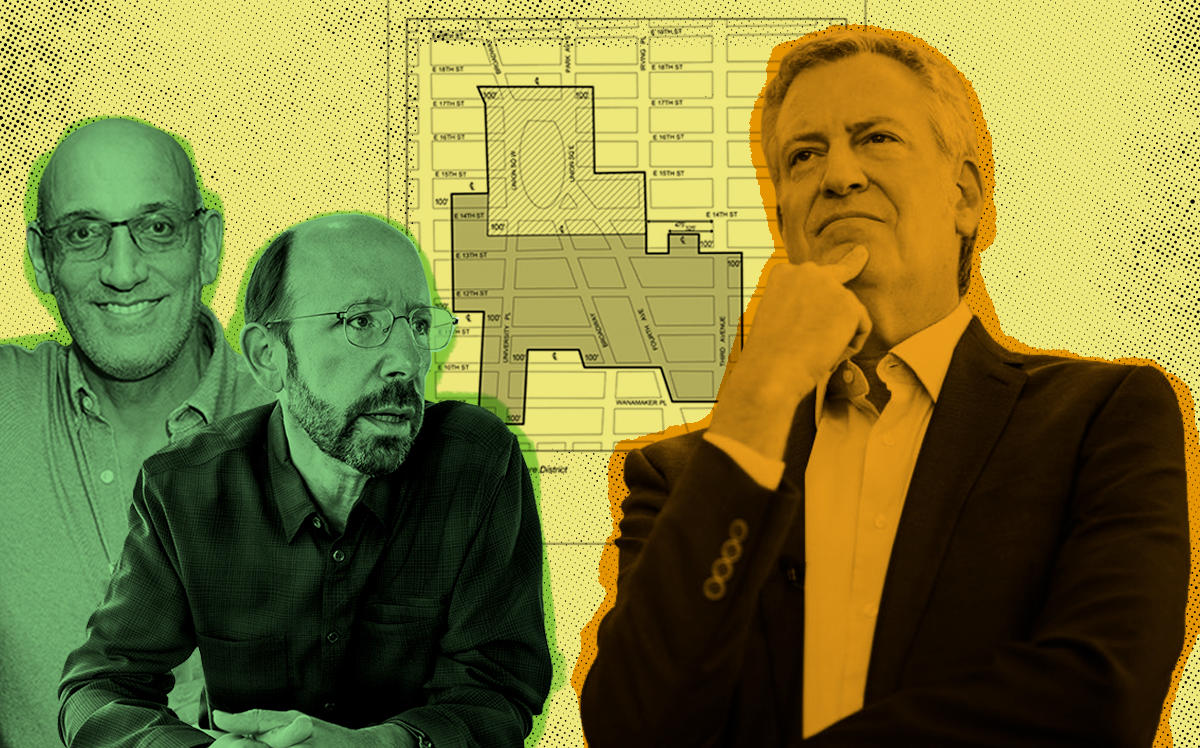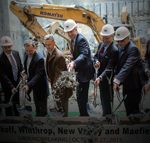 In nod to union, de Blasio will seek special permit for hotel development
In nod to union, de Blasio will seek special permit for hotel development
Trending
Hotel developer sues city over special permit plan
City is avoiding a proper review by proceeding in piecemeal fashion, suit claims

As the de Blasio administration prepares to require special permits for hotel construction in yet another New York City neighborhood, one hotel developer has decided to take the fight to court — and one of the city’s most prolific hotel architects is supporting the effort.
Morris Kalimian of ELK Investors filed an Article 78 petition Monday to block the city’s plan to require special permits in an area south of Union Square, until it conducts a review of the impact of the overarching plan to require special permits everywhere.
“A proper SEQRA [State Environmental Quality Review Act] review would expose the plan as an existential threat to new hotel development, sacrificing all the New Yorkers who build hotels, work in them, provide off-site services to them… and of course stay in them,” a brief submitted in support of the petition states.
The de Blasio administration has been sidestepping the issue of the plan’s citywide impact by introducing special permits neighborhood by neighborhood in violation of state law, the brief alleges. “Soon enough, citywide legislation will be an afterthought. It is a strategy to nullify SEQRA by baby steps.”
Architect Gene Kaufman spoke out in support of the move. “The administration has offered no economic or other public purpose for a plan to strangle new hotel development and the tourism it would support,” Kaufman, who specializes in hotel design, said in a statement. “While the motives for such a plan are unclear at best, the harm it would do is obvious, which explains the steps the administration has taken to obscure its plan.”
Kaufman argued that requiring special permits for new hotel projects will slow down development, push up hotel room rates and drive away tourists.
“Hotels are a vital part of New York city’s economy,” said Kaufman in an interview. “If a show is going to be on Broadway and there’s going to be nobody in the audience there won’t be any show. And what happens to all of those actors and all of the other people?”
“I think that it’s a mistake to move in a direction that prevents people from coming to the city,” he added.
De Blasio’s push for special permits is widely regarded as a nod to the New York City Hotel Trades Council — the only labor union to endorse de Blasio in his failed presidential run, spending $440,000 on ads for the campaign.
In a much broader move in late 2018, the administration imposed a special permit requirement for hotels in all manufacturing zones in the city, and received relatively little pushback from developers.
“For a variety of reasons that I actually don’t understand, there was not as strong of an opportunity to do something” about the M1 Hotel Text Amendment, Kaufman said. “But now it’s been announced publicly by the administration that the intention is to require special permits for all hotels throughout the entire city, and now I think is the time to do something about it.”
Read more
 In nod to union, de Blasio will seek special permit for hotel development
In nod to union, de Blasio will seek special permit for hotel development
 Go big or go home? Why small hotel development in NYC may be a thing of the past
Go big or go home? Why small hotel development in NYC may be a thing of the past
 Hotel union boss scores as political chameleon
Hotel union boss scores as political chameleon
 What retirement? Sam Chang files plans for Midtown hotel
What retirement? Sam Chang files plans for Midtown hotel
Kalimian is currently putting together a four-lot assemblage around 86 East 10th Street, in a location that the city has identified as a “likely” hotel development site.
“The Union Square Plan would jeopardize plans to build a hotel on the site, reduce the resale value of the lot, and create significant adverse impacts on the area’s socioeconomic conditions, directly injuring Petitioner-Plaintiff,” the lawsuit says.
The petition notes that New York state law prohibits “segmentation” of environmental reviews, or the splitting up of a larger plan into smaller actions “as though they were independent, unrelated activities, needing individual determinations of significance.”
Following the adoption of the M1 Hotel Text Amendment, a TRD analysis found that hotel developers had largely stopped developing the type of small, budget hotels more suited for manufacturing zones.
Last May, “budget hotel king” and frequent Kaufman collaborator Sam Chang announced that the rezoning had put him “out of business,” and that he would be retiring to focus on pigeon racing in Taiwan. But in December, Chang and Kaufman filed plans for a massive 974-room hotel near Times Square, which is set to be the city’s largest new hotel in the past 30 years.




